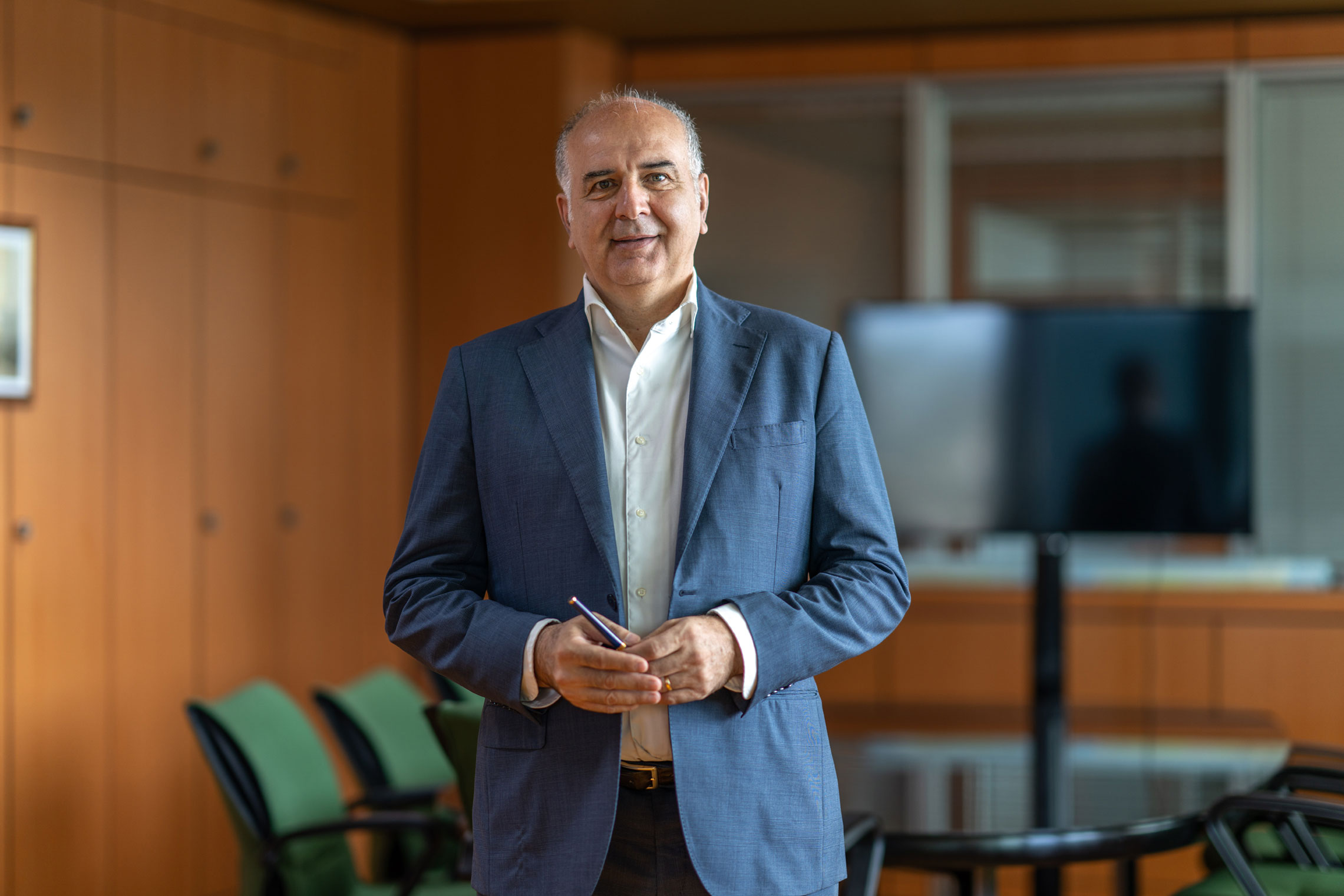Michela: Marco, as a CEO with extensive experience in people management, what principles guide you in nurturing talent within the company?
Marco: Managing people is the heartbeat of any organization. My approach is based on three fundamental pillars: listening, vision, and empowerment. First and foremost, listening to people is not just important, it’s essential. Every talent has specific needs and ambitions that must be understood to be effectively nurtured. Vision is crucial for providing people with a clear and motivating direction, showing them how their work fits into the broader organizational picture. Finally, empowerment means offering growth opportunities and recognizing achievements because a talent left unacknowledged is a lost opportunity—for both the individual and the company.
Michela: You’ve led companies in technical and complex sectors, such as power switchgear. What lessons have you learned from managing people in such specialized contexts?
Marco: In highly specialized technical sectors, the challenge is balancing operational excellence with innovation. This involves not only attracting the best technical talent but also fostering a corporate culture that encourages collaboration and innovation. In a field like power switchgear, where every project is a unique undertaking, I’ve learned that it’s essential to build agile, multidisciplinary teams capable of responding quickly to challenges and opportunities. Continuous training is also fundamental: technology evolves rapidly, and human capital must always be up to date.
Michela: Speaking of organizational change, what role does leadership play in managing complex transitions such as restructuring or strategic shifts?
Marco: Leadership, in these situations, is the compass that guides the entire organization. As a CEO, I know that change can generate uncertainty, and sometimes resistance. My role is to convey a clear and compelling vision of the future, explaining not just the “what” and “how” of the change, but especially the “why.” Communication is critical here: being transparent and consistent strengthens trust. At the same time, involvement is equally important. Giving people a voice in the transition process helps create a sense of ownership and reduces opposition. Finally, practical support—through tools, training, and mentoring—is what enables change to translate into tangible results.
Michela: How do you promote talent development and ensure they remain motivated and engaged over the long term?
Marco: Motivation and engagement aren’t achieved with a one-size-fits-all approach: every talent is unique and requires a personalized strategy. In my role, I focus on building individual growth paths based on clear targets and stimulating challenges. This means not only offering training but also providing opportunities to work on new projects, perhaps in international or multidisciplinary settings. I also strongly believe in recognition: celebrating individual and team successes is a powerful lever to maintain high motivation. Lastly, I invest heavily in creating a work environment that supports work-life balance because when people are satisfied and at ease, they always give their best.
Michela: How do you approach negotiations in a complex corporate environment?
Marco: Negotiation, in my opinion, is a transversal skill that touches every aspect of a CEO’s role. For me, negotiating often means mediating between stakeholders with seemingly divergent interests—whether employees, clients, or shareholders. The first step is always preparation: understanding the needs, expectations, and strengths of each party. Then, I adopt a collaborative approach: I aim for solutions that not only meet immediate needs but also create long-term value. For example, with employees, negotiation often involves crafting agreements that balance company goals with personal aspirations, while with clients, it’s about building partnerships based on trust and transparency.
Michela: You’re known for your organizational communication skills. How important is effective communication for an organization’s success?
Marco: Effective communication isn’t just important; it’s the foundation on which every organizational success is built. When I communicate with my team, I focus on three aspects: clarity, frequency, and authenticity. Clarity means avoiding ambiguity and delivering messages that are easy for everyone to understand. Frequency is just as crucial: sporadic communication leaves room for doubts and speculation. Finally, authenticity: people recognize and appreciate a leader who speaks honestly and consistently. In times of change, this approach becomes even more vital because it helps maintain trust and a sense of belonging.
Michela: What is the main piece of advice you would give to someone aspiring to become a CEO?
Marco: The most important advice is to remember that being a CEO isn’t a destination but a starting point. It’s a responsibility that requires humility, a willingness to keep learning, and a commitment to putting people at the center. Investing in personal development is crucial, as is surrounding yourself with capable and motivated collaborators. Lastly, never forget that every decision you make impacts people: leading with empathy and integrity not only strengthens trust but also lays the foundation for sustainable success.
